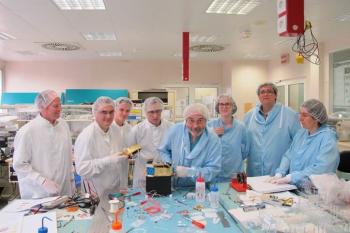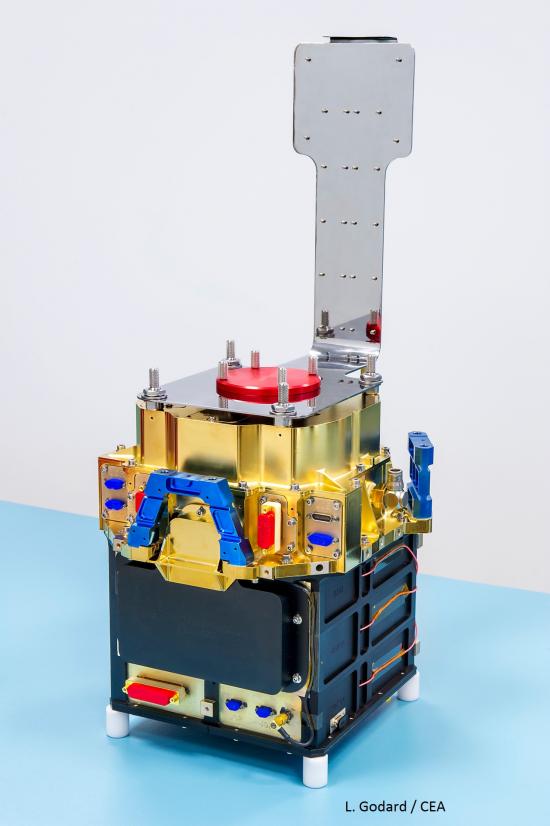A prototype of the MXT camera arrived at the CNES in Toulouse on 25 October 2018. This is the Structural and Thermal Model (STM), which will be integrated into the telescope that will be sent to China to be mounted on the SVOM satellite Qualification Model.
The objective of this model is to validate the thermo-mechanical design of the camera. It also makes it possible to check the manufacturing and assembly capacity of the various components, which represent more than 1,000 elements. The model realized includes all the camera subassemblies with a good level of representativeness of the flight model, both on its external design (interfaces with the telescope) and on its internal design (harnesses, connectors...). The electrical parts (detector, electronic boards, motor) are replaced by weights and heaters to simulate their mechanical and thermal behaviour.
The model was designed and modelized by the IRFU MXT project team (DAP and DIS), carried out with the support of several European subcontractors, and integrated into the clean room of the Astrophysics Department. It was then subjected to environmental tests to reproduce the mechanical and thermal conditions of the launch and in-orbit life of the instrument. Vibration tests from 40 to 75g were carried out in July 2018 at Airbus (Elancourt) and thermal tests from -65 to 60°C were carried out between July and September 2018 at the CEA. The experimental data were compared with finite element modelling and a good correlation was demonstrated. A total of 25 IRFU technicians and research engineers participated in this project.
Improvements in design and assembly methods have been identified for the next camera models planned for 2019. On the one hand, a "Performance Model" will be produced to complement the structural and thermal model to validate the detection chain and the wheel mechanism. It will also verify the imaging performance of the complete MXT instrument. In addition, the "Proto-Flight Model" will be produced, which will undergo space qualification tests before being delivered to CNES and then integrated on the MXT instrument and on the SVOM flight satellite.
Contact: Aline MEURIS
Highlight: MXT camera first light
• Innovation for detection systems › Detectors for both infinite physics Structure and evolution of the Universe › High energy cosmic phenomena and astroparticles Technological platforms › Development and integration platform for astrophysics
• Department of Astrophysics (DAp) // UMR AIM • The Systems Engineering Division
• Space Systems and Architectures • Study and Development of Space Eletronic Systems
• SVOM





